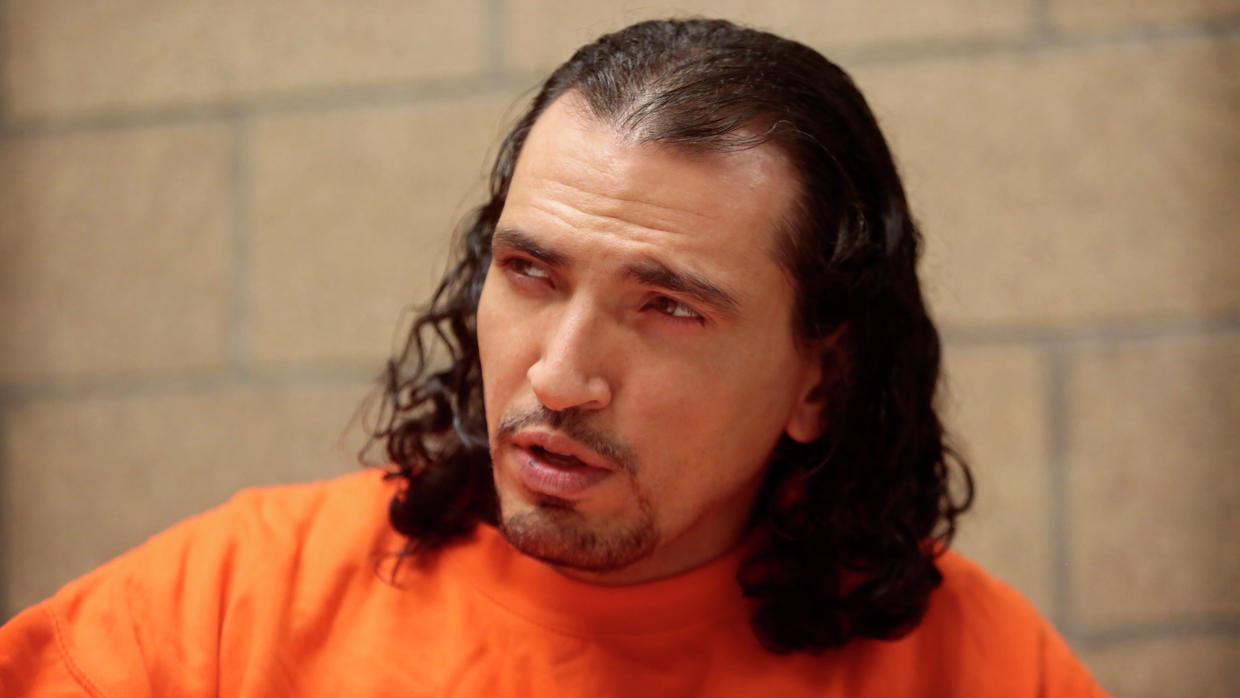
17 Apr Feds have no notes, recordings from interview with accused fentanyl ringleader linked to Grand Forks death
But the defense for Daniel Vivas Ceron, a 38-year-old Colombian national, questioned what happened to notes taken during the interview, asked why agents showed the defendant pictures of his then-girlfriend and mother, and suggested recording interviews, which was not done in this case, was more reliable than referring to reports from law enforcement.
U.S. District Judge Alice Senechal listened Tuesday in Fargo’s federal courthouse to several hours of testimony and will decide whether statements Vivas made to U.S. agents in Panama should be inadmissible for his trial. Vivas faces life in prison after the U.S. Attorney’s Office accused him of leading an international fentanyl operation from a medium-security prison near Montreal.
After serving 12 years in the Canadian prison, he was deported to Colombia. But Canadian law enforcement handed him over July 17, 2015, during a layover in Panama to local police, who allowed U.S. Drug Enforcement Administration Special Agent Michael Buemi to interview him.
U.S. agents testified that they informed Vivas of his Miranda rights before they interviewed him. Vivas asked questions about why they were there, but he was cordial and cooperative, said Buemi and Homeland Security Investigations Special Agent Brian Black, who took notes during the interview.
In a handwritten 231-page sworn statement, Vivas claimed agents threatened to hurt his mother and then-girlfriend if he didn’t confess to whatever they wanted. He told The Forum in a jailhouse interview that he admitted to the accusations to protect his family.
But because Vivas says something happened, it doesn’t necessarily make it true, prosecutor Scott Kerin said. “If Mr. Ceron says he is an ostrich, that doesn’t make him an ostrich, does it?” Kerin asked during his line of questioning.
Both Black and Buemi denied threatening Vivas, his family or anyone related to them. The interview was not recorded because Panama’s constitution prohibits that without a warrant, said HSI Special Agent Jeremy Grube of the Grand Forks Division.
Black wrote his report based off notes he took during the interview in Panama, but he testified he couldn’t find the notes later. He also was texting with Grube, who was overseeing an interview between Canadian agents and Vivas’ then-girlfriend July 17, 2015, to see if she was involved in the drug ring.
However, U.S. agents replace their phones periodically and don’t retain texts from those phones, Black testified.
During cross-examination, Black acknowledged he thought the interview with Vivas would be “very important” ahead of confronting the suspect. That’s when defense attorney Charles Stock noted that Black thought the interview was important and the fact that the notes from it are gone and that no one took photos of the interview room, which was allowed.
“It would be nice to have those to substantiate different versions of the story, wouldn’t it?” Stock asked, referring to the lack of photos.
Stock also noted that agents felt Vivas was very intelligent and knew he was facing serious prison time for the alleged crimes, yet he was cooperative to the point of handing over a list of contacts for customers and co-conspirators, according to federal agents.
“Most of them want to come clean and don’t want to deal with the process,” Black said when asked why suspects sometimes confess.
Vivas fought extradition to the U.S. when he was in Panama, but Buemi testified the suspect wanted to come to the U.S. and cooperate with agents. When agents picked up Vivas in 2017, he asked what took them so long, said he had a lot of information on others involved in the ring and asked what cooperating with the investigation would look like, Buemi and Grube testified.
Grube couldn’t recall whether he recorded a phone conversation he monitored between Vivas and his then-girlfriend when both were in custody.
When asked if relying on notes from law enforcement is not as accurate as a recording, Grube said it would be more convenient to have a recording of interviews or phone calls.
It’s unclear when the judge will issue a ruling, though she said she would do it “as soon as I practically can.”
Vivas’ trial is set for Oct. 1.
[ad_2]
Source link



No Comments